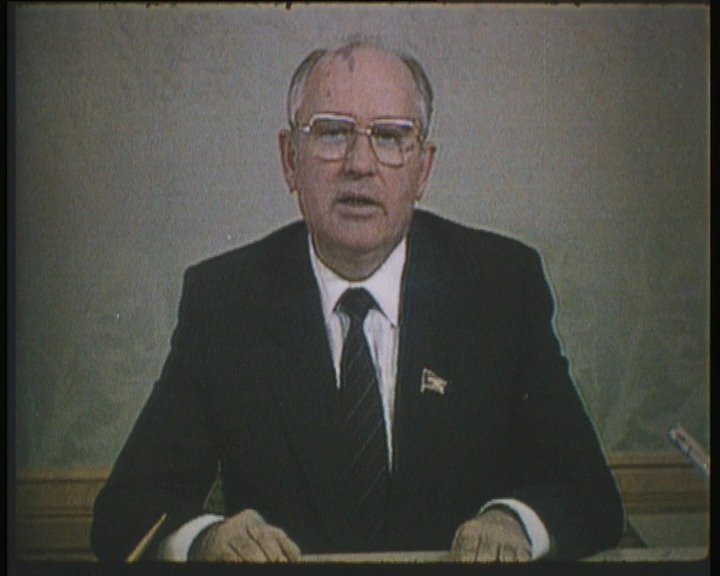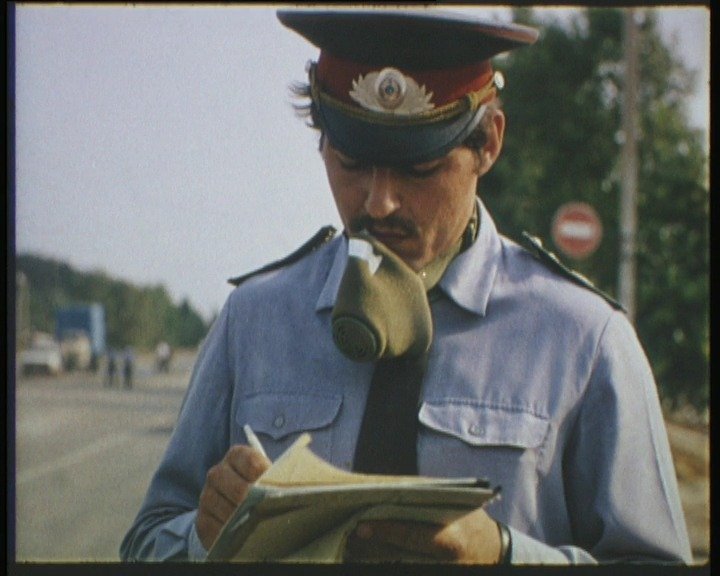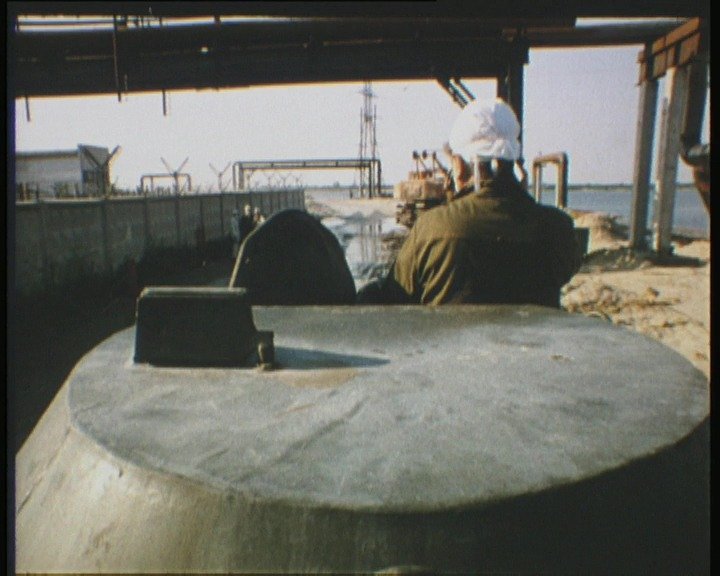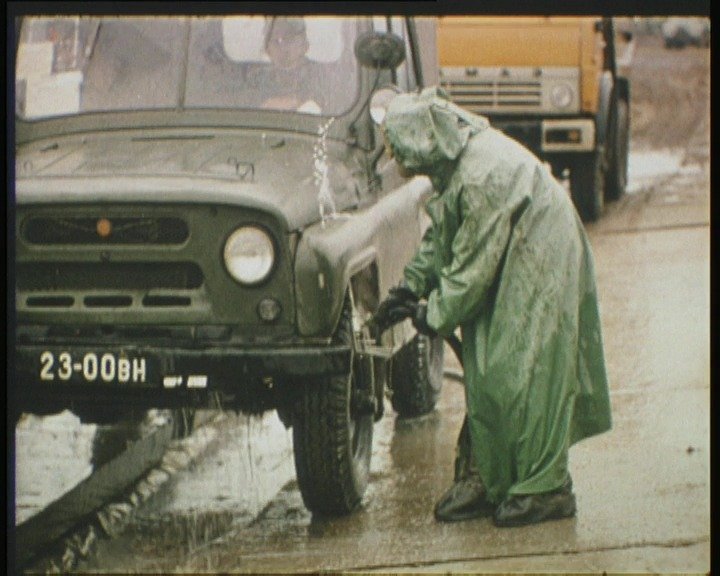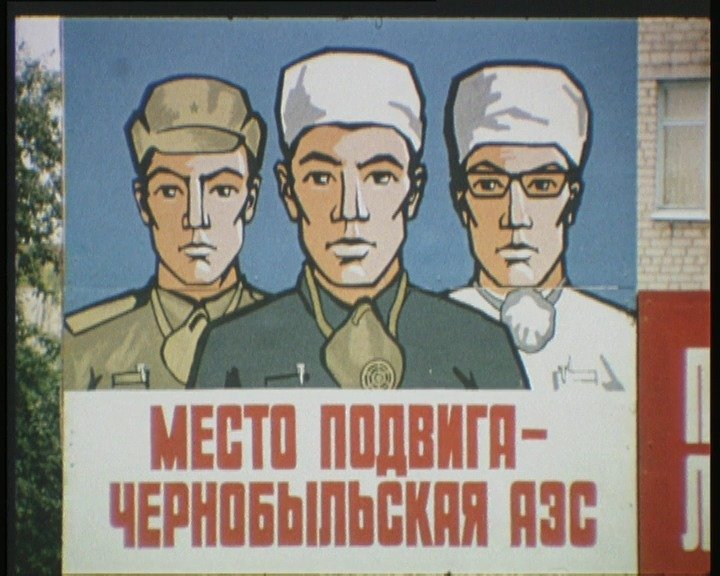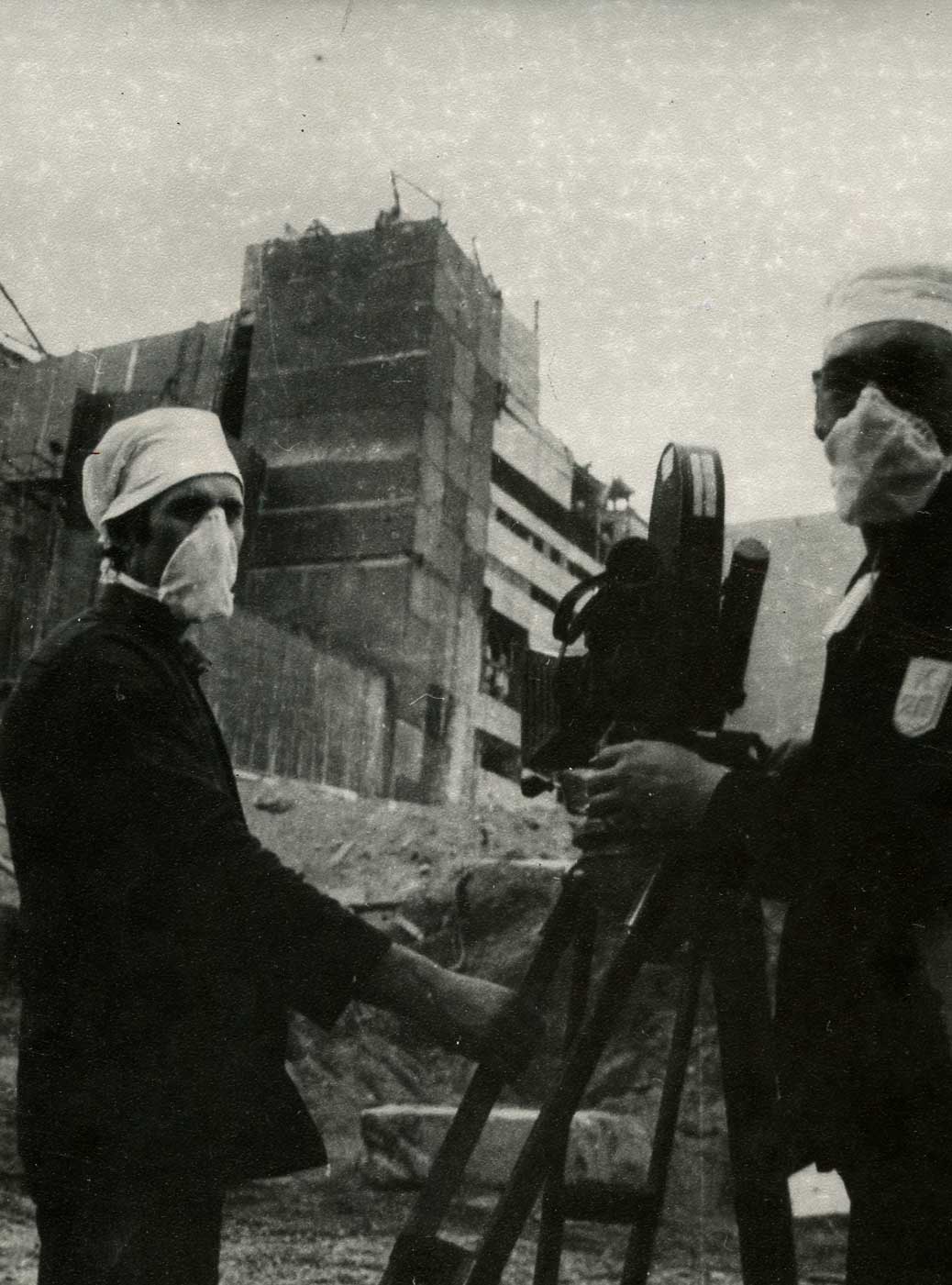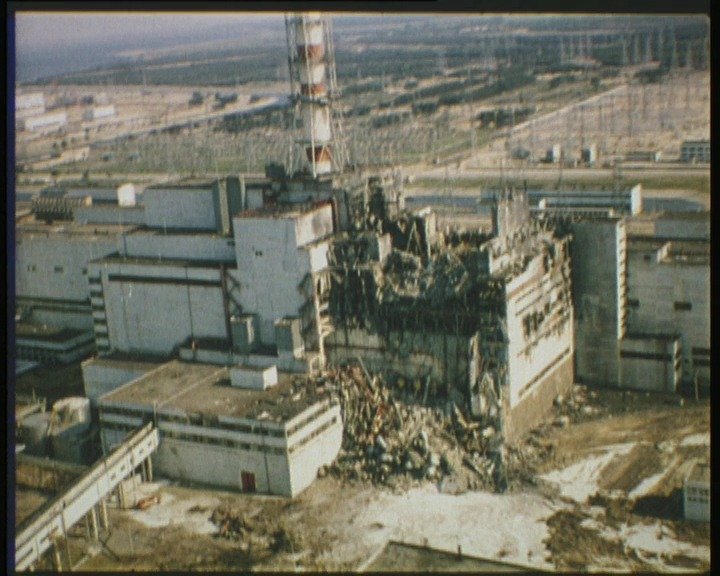
Chornobyl. Chronicles of the Hard Weeks / Chornobyl. Chronika vazkkyh tyzhniv
1986
Ukrainian SSR
Ukrkinokhronika
56 min
Volodymyr Shevchenko
Volodymyr Shevchenko
Viktor Kripchenko, Volodymyr Taranenko, Volodymyr Shevchenko, Volodymyr Kukorenchuk, Ihor Pysanko, Anatolii Khymych
One of the first films shot after the Chornobyl disaster, filming of which began on May 14, 1986. It was the very day when Mikhail Gorbachev’s address was broadcasted on the central television channels of the USSR, which also became a part of the film. This speech was the first official statement of the General Secretary after more than two weeks since the disaster.
The film emphasizes the invisibility of radiation. Instead, its “voice” – distinct sound noises – is heard. The filming equipment constantly malfunctions, creating characteristic spots on the film’s tape. The movie documents key decisions made to deal with the aftermath of the disaster – the construction of the sarcophagus “for eternal burial,” pumping liquid nitrogen into the burning reactor, evacuation of the population from contaminated areas, and more.
The shooting took place not only in the offices of officials and meeting halls but also in the most “hot spots.” Despite warnings from nuclear scientists, the film’s cameramen and director filmed events from the roof of a building adjacent to the epicenter of the accident at the Third Reactor Unit. After the completion of filming in June of the same year, all members of the filming crew were diagnosed with radiation doses many times higher than what is considered safe, with some immediately hospitalized. The film’s director, Volodymyr Shevchenko, died in March of the following year due to exposure to the radiation. Despite the “Glasnost” slogans of Perestroika, the film was not released until February 1987.
The film, shot in the aftermath of the disaster, marked the beginning of the portrayal of the traumatic experience of this catastrophe while also shaping approaches to representation of the tragedy. The haunting voiceover and the understanding that the filming crew knowingly risked radiation exposure during the shooting add an intense sense of drama to the film.
